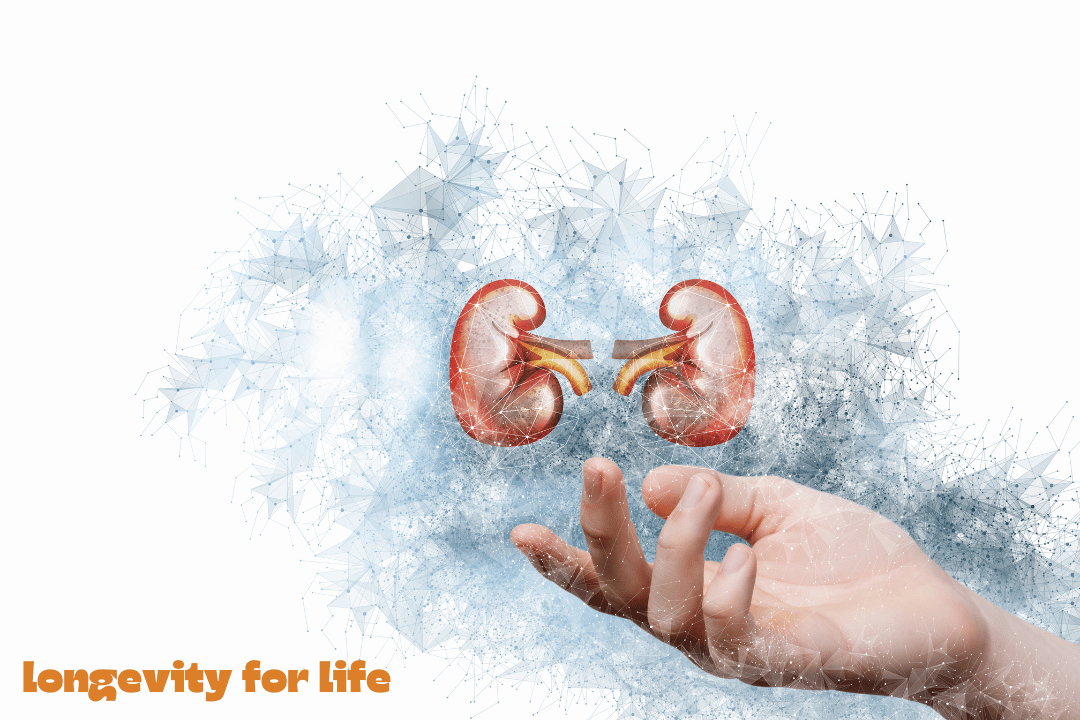
In today’s email:
• Cancer and Aging: The link that can go both ways.
• Living Forever: It’s not all about living longer, but living better as well.
• More Than Just Weight Loss: Weight loss drug could be beneficial for more than just losing fat.
TOP STORY

Understanding the Link Between Aging and Cancer: What You Need to Know
This week, we're diving into a topic that's incredibly important for your long-term health: the connection between aging and cancer. While it might seem like these are just two separate health challenges, scientists are discovering a fascinating and complex interplay between the two. Let's unpack this together and see what it means for your well-being.
The Natural Aging Process and Cancer: What's the Connection?
As we get older, our risk for cancer tends to increase. This isn't just because time is passing; there seems to be a deeper connection. Researchers are finding that aging and cancer share some of the same underlying factors. But, interestingly, some aspects of aging may also offer some protection against cancer later in life. Here's a closer look:
Shared Causes: Many things that contribute to aging also seem to increase the risk of cancer. These include:
DNA Changes: Over time, our DNA can accumulate changes that may lead to cancer.
Epigenetic Factors: There are changes in how our genes are expressed as we age that can increase cancer risk.
Inflammation: Chronic, low-grade inflammation that can occur with age is also linked to cancer.
Gut Health: Changes in gut bacteria are another area of concern for both aging and cancer.
The Protective Side of Aging? It's a bit surprising, but there are some aspects of aging that might offer some protection against cancer:
Telomere Shortening: These structures at the end of our chromosomes can shorten, which may reduce cell division that could lead to tumor growth.
Stem Cell Changes: As we age, stem cells may diminish, which can prevent certain types of cancer growth.
Waste Removal Slowdown: A natural slowdown in how our body eliminates cellular waste may surprisingly also inhibit cancer cell growth.
Cellular "Retirement": When our cells stop dividing, it may act as a barrier to tumor development.
Cancer's Effect on Aging and Vice Versa
The story doesn't end there. Cancer itself and its treatments can actually accelerate the aging process. The good news is that by understanding these connections, we can find ways to reduce cancer risk and support long-term health:
Cancer's Toll: Cancer itself can take a toll on the body and can speed up the aging process.
Long-Term Effects of Treatment: The very treatments meant to cure cancer (like chemo and radiation) can lead to long-term health problems that resemble premature aging.
What Does This Mean for You?
The takeaway here is that focusing on healthy habits is incredibly important for both preventing cancer and slowing down the aging process. This includes:
Eating a healthy diet: Focus on whole foods and plant-based options.
Staying physically active: Move your body regularly!
Limiting toxins: Reduce your exposure to environmental pollutants and harmful substances like tobacco and alcohol.
Maintaining gut health: Focus on prebiotic and probiotic foods.
Managing inflammation: Incorporate anti-inflammatory foods, exercise, and stress management techniques.
The Importance of Personalized Care
It's also critical to remember that as we age, our cancer care should be customized to fit our unique needs. This means:
Individualized Treatment: Not all cancer treatments are right for everyone, especially as we get older.
Comprehensive Assessment: It's important for healthcare providers to consider more than just chronological age when treating cancer. They should evaluate overall health, lifestyle, and biological markers to determine the best course of action.
The Big Picture
The complex relationship between aging and cancer demonstrates just how interconnected our bodies are. By understanding these links, we can make informed decisions about our health and advocate for personalized care. This research continues to evolve, but the key message is clear: proactive health measures can have a significant impact on our well-being as we age.
The Promise of Longevity: It's More Than Just a Number

You've probably heard about the latest "anti-aging" breakthroughs and maybe even the idea of living forever. It’s true that science is exploring ways to slow down the aging process, but it's important to separate the facts from the sensational claims. Here's what you need to know:
Focus on Healthspan, Not Just Lifespan: While living to 150 or 200 is still science fiction, researchers are making strides in extending our “healthspan” – the period of life we spend in good health. This means we might not live much longer, but we could spend more of our later years feeling great and active.
Rapamycin's Promising Role: A drug called rapamycin, traditionally used to prevent organ rejection, is showing some interesting effects. It has been found to help with mice's oral health, preventing gum disease, and even promoting bone regrowth. It also has been found to extend lifespan in animals.
Human Trials Are Next: Researchers are now investigating if these benefits can also be seen in humans, and it may eventually be used to help with more than just oral health. However, these findings are still very early, and we still don't know much about the long term affects of use.
Beware of the Hype: Big money is flowing into the longevity field, with companies and clinics claiming they can reverse aging. But many scientists are cautious, and many of these businesses might be trying to make money off people’s desire for a longer life, instead of having a genuine interest in their health.
Basic Research is Key: While there’s a lot of interest in certain specific drugs, many scientists feel it's important to continue the slower work of understanding why we age and the fundamental biological process that are at play. This will help to create new and improved medicines.
The tried and true: The best things you can do to live a long and healthy life still remain the same. Eating a balanced diet, engaging in regular physical activity and getting sufficient sleep. These “boring” lifestyle habits are still the most impactful ways to improve overall wellness.
Slow Progress is Still Progress: The science of aging is complex, and finding breakthroughs takes time. It is important to stay patient and informed, understanding that longevity science is a process, not a quick fix.
In Conclusion: While the idea of living forever is intriguing, the most realistic outcome of longevity research is improvements in health and wellness, not necessarily dramatic increases in lifespan. Focus on making healthy choices today, and keep an eye on the fascinating science that may help us live longer and better.
Together with longevityfor.life

Want to live longer and feel stronger? The Life Extension Handbook from longevityfor.life is your ultimate guide to unlocking a healthier, longer life. Packed with actionable tips on boosting cardiovascular health, building muscle strength, optimizing nutrition, and mastering your sleep habits, this handbook gives you everything you need to thrive at any age. Whether you're looking to crush your fitness goals or simply feel your best, this guide has you covered. Grab your copy today and start your journey toward lifelong vitality!
New Hope for Diabetes and Kidney Health

A groundbreaking study, presented at the 61st ERA Congress, shows that a medication called semaglutide can significantly help people with both type 2 diabetes and chronic kidney disease. This is exciting news, as these conditions often occur together and can lead to serious health problems.
What the Study Showed:
The study, called the FLOW trial, involved over 3,500 participants with type 2 diabetes and chronic kidney disease.
Some participants took semaglutide once a week, while others took a placebo (a dummy pill with no active medication).
Key Finding: Those who took semaglutide had a 24% lower risk of major kidney issues, like kidney failure, and also a lower risk of death from kidney or cardiovascular problems compared to the placebo group.
Additional Benefits: Semaglutide also slowed down the decline in kidney function, decreased major cardiovascular events by 18%, and reduced the risk of death from any cause by 20%.
This means that semaglutide can protect the kidneys, heart, and even extend the lives of people with these conditions.
Importantly, the study found that semaglutide was safe and had fewer serious side effects than the placebo.
Why This Matters:
Chronic kidney disease is a significant global health issue, especially for people with type 2 diabetes, and can lead to kidney failure, heart problems, and even death.
Current treatments do help, but many people with these conditions still have health issues.
These findings offer a new approach for protecting the kidneys and the heart for people with type 2 diabetes and chronic kidney disease.
The Big Picture:
This research offers a new level of hope and promise for better managing diabetes and chronic kidney disease. It highlights the potential of semaglutide to transform treatment strategies and improve the lives of millions around the globe. It’s encouraging to see the development of treatments that can protect kidneys, hearts and lives.

This email was brought to you by Scott Ward
Was this email forwarded to you? Sign up here.
*Some links may contain affiliate and sponsorship associations to aid in newsletter support.
If you are loving the Beehiiv platform, try it out FREE for 30 days, plus 20% off your first 3 months
